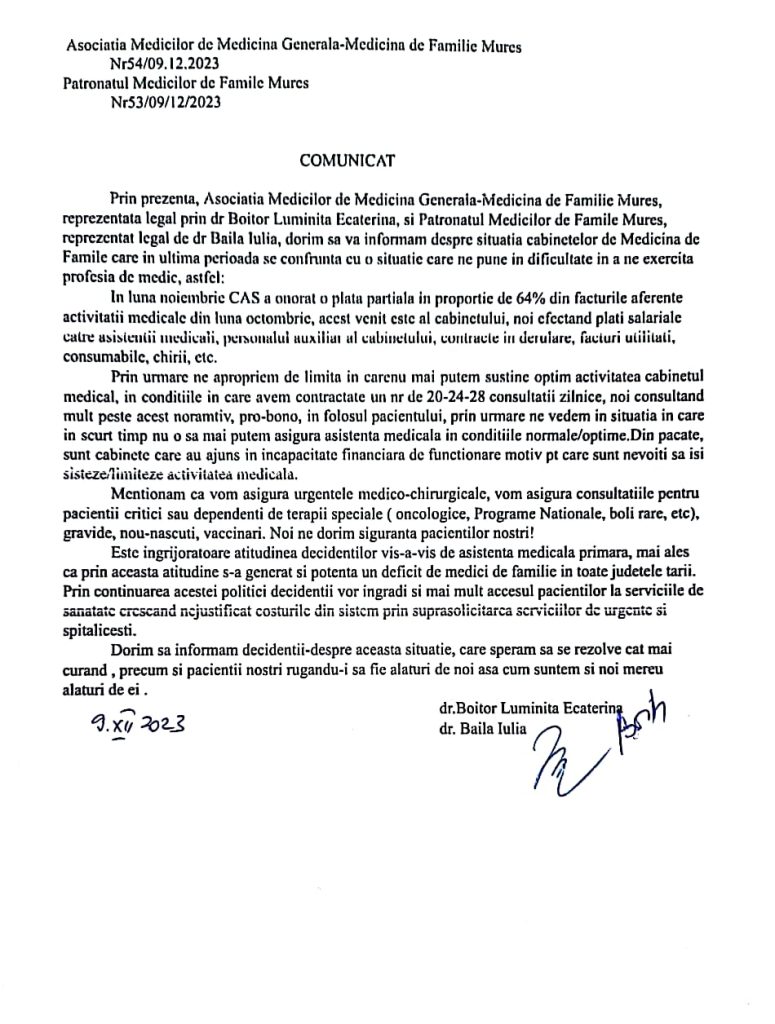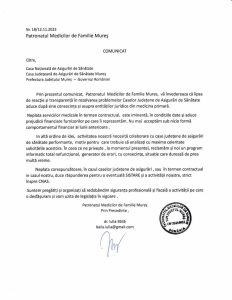
Concernul Johnson & Johnson a cerut clientilor sai din intreaga lume sa returneze un instrument chirurgical care se foloseste in histerectomie, intrucat poate propaga cancerul, informeaza Agerpres.
Compania farmaceutica a anuntat ca retrage de pe piata acest tip de instrumente a carui vanzare a fost deja sistata in aprilie, dupa un avertisment din partea Agentiei pentru Alimente si Medicamente (FDA) din SUA.
Cu aceste instrumente se fragmenteaza acumulari de tesut uterin precum fibromul, si chiar uterul, cand acesta este afectat, pentru a putea fi mai usor extirpate apoi printr-o chirurgie minim invaziva. FDA a avertizat insa ca aceste tesuturi pot contine celule maligne si ca instrumentul poate contribui la raspandirea cancerului, mai ales cand este vorba de sarcom, si sa reduca probabilitatile de supravietuire ale pacientelor.
Potrivit ziarului The Wall Street Journal, vanzarea acestor instrumente reprezinta o mica parte a afacerilor derulate de Johnson&Johnson, concern care controleaza 72 % din piata dispozitivelor de acest gen.
Agerpres.
Johnson & Johnson JNJ -0.19% said Wednesday it was withdrawing a surgical tool that can spread cancer in women, effectively removing the device's largest manufacturer from the market amid a contentious debate over its use.
The company plans to tell customers world-wide in a letter Thursday to return the devices known as laparoscopic power morcellators. J&J already suspended sales of new morcellators in April after the U.S. Food and Drug Administration advised doctors not to use the tool, which slices up common uterine masses called fibroids, and uteruses themselves, into fragments so they can be removed in minimally invasive surgery.
At the time, J&J defended the safety of the tool but said it was waiting for more guidance from the medical community.
The FDA hasn't weighed in further yet. But in recent weeks, concerns about the tool's risks have grown. J&J's Ethicon division, which sells the devices, said in the letter to customers that an FDA hearing held earlier this month "demonstrated the complexity of this issue."
Uterine cancers called sarcomas can masquerade as benign fibroids and can't be reliably detected before surgery. Using a morcellator can inadvertently spread malignancies and other diseased tissues inside the body, possible worsening outcomes. Last week, a study from Columbia University further underscored those risks.
"The bottom line is that it looks like the sarcoma risk is much higher than we originally thought," said Steven McCarus, a paid Ethicon consultant and the chief of gynecological surgery at Florida Hospital Celebration Health, which was one of the chief J&J training sites for the morcellator device. The hospital is part of a larger Orlando-area system that, like many health systems, suspended use of power morcellators after the April FDA advisory.
Dr. McCarus said he was one of several doctors who recently sat on a committee formed by the company to review the literature on power morcellators and the cancer-spreading risk. Dr. McCarus said he advised Ethicon that the risk was too high.
J&J's decision sent a strong signal to doctors who have watched a debate over the tool roil the gynecological field for months.
"What it says to me is that they are rightfully so concerned with ramifications of spreading cancer that they just don't want any part of this market," said James Barter, the director of gynecologic oncology research at Holy Cross Hospital in Silver Spring, Md. "The message is very, very sound, very clear," he said. "The message is that it's just not worth it. "
A J&J spokesman said the company hadn't decided whether it would return to the market. "Ethicon believes that a market withdrawal of Ethicon morcellation devices is the appropriate course of action at this time until further medical guidelines are established and/or new technologies are developed to mitigate the risk," the company said in its letter to doctors.
J&J doesn't disclose morcellator sales, but they are a very small part of the health-care conglomerate's overall business, which posted sales of $71.3 billion in 2013.
But the company is by far the biggest manufacturer in the market for laparoscopic morcellators. In 2011, the company held an estimated 72% of the market for these devices, according to the most recent data provided by iData Research Inc., a market-research firm.
Smaller manufacturers, including German companies Karl Storz GmbH and Richard Wolf GmbH, and Danish company LiNA Medical, haven't responded to requests for comment on the morcellator debate and their market plans. Olympus Corp.7733.TO -2.67% , which makes a morcellator that cuts with electricity rather than a blade, declined to comment on plans for its device.
While the risks of cutting up cancer inside a body were long known, the risk that a woman with presumed fibroids actually had sarcoma was widely believed to be so small—1 in 10,000—that most gynecologists rarely even mentioned it to patients.
But after a high-profile case in Boston, the medical field began re-evaluating that risk. In April, the FDA said women undergoing surgery for fibroids have a 1 in 350 risk that the growths are actually cancerous.
The FDA has estimated the tool was being used in 50,000 hysterectomies a year. They were also commonly used for removing fibroids alone.
Last week, a new study by Columbia University found a similar risk: 1 in 368 women undergoing hysterectomies have a hidden uterine cancer that could be spread by a morcellator.
The report in the Journal of the American Medical Association was the largest assessment yet of the device's risk, and examined the records of a much larger group of women than the FDA did in its main analysis. The study also concluded that the surgical device has the potential to spread more types of uterine cancer in a woman's body than previously thought.
Still, major gynecology groups have defended the device as an important tool that helps women avoid open surgery, which can have more complications, such as blood loss, and can lead to longer recoveries.
Christopher Stanley, the medical director at Halifax Health Center for Female Pelvic Medicine in Daytona Beach, Fla., said he received a text about noon on Wednesday from a J&J representative who said the company planned to withdraw from the morcellator market.
But Dr. Stanley said he doesn't think the move means the end of use of the device. His hospital, which is still offering power morcellation with detailed informed consent, had already been relying on other companies to provide the instrument.
"I think there will be other players that will pick up the slack until we get guidance from the FDA," he said.
Medical Forum Targu Mures 24-25 aprilie 2024
(Eveniment cu prezenta fizica)

